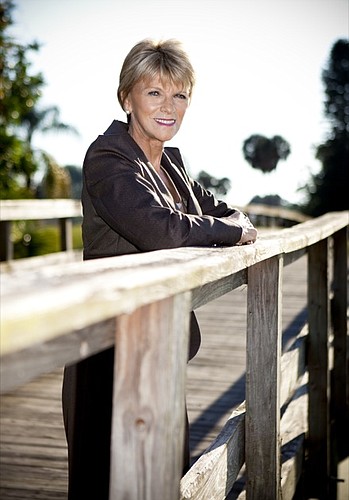- November 24, 2024
-
-
Loading

Loading

Nicci Kobritz is something of an accidental entrepreneur who says one of her greatest daily challenges is to grow “comfortable with the unpredictably of success.”
In fact, Kobritz, a registered nurse and onetime cabinet-level officer for the state of Maine, only moved to Florida in the early 1990s to take care of her elderly parents.
But she became so intrigued by the business of elderly care that she decided to go in it for herself.
That was in 1993. Now, in her second business in the field, Kobritz faces the ultimate entrepreneurial challenge: How can she substantially grow her low-volume, high-margin firm without diluting the concierge-style touches that made the business successful in the first place?
Kobritz' solutions will go a long way toward determining how far she can take Youthful Aging, the Sarasota-based elderly home health care firm she founded in 2005. She's in a crowded marketplace with a wide variety of competitors, yet the firm has been able to grow revenues 60% since 2007, from $2.5 million to $4 million.
“This is a model that can be replicated anywhere,” says Kobritz. “But I will not be in a position of compromising the integrity of this model.”
The model has two distinct parts.
On the business side, the company focuses on low-volume, specialized attention. That means clients will usually pay up to 20% more than most other home health care firms. Youthful Aging only accepts private pay or private insurance.
From the medical side, the company's backbone is its Brain Academy. The academy is a series of brain fitness games and exercises that work to slow and prevent memory loss and dementia. The firm uses a software program called Dakim BrainFitness, where seniors utilize a touch-screen computer.
The Youthful Aging Brain Academy has been successful, both on a clinical basis with clients and in generating buzz in the Sarasota senior citizen community. The Senior Friendship Center in Sarasota, for example, uses the Dakim BrainFitness system with a steady stream of clients.
Now Kobritz wants to turn buzz and client success stories into long-term growth.
To get there, Kobritz has all but ruled out the franchise option because of onerous regulations and a lack of control over the growth. But she will consider licensing the Youthful Aging model to other health care entrepreneurs.
That type of calculated gamble wouldn't surprise some local business and community leaders who know Kobritz. “Most people with her profitability are content with not growing,” says Ken Honick, a Sarasota accountant who has worked with Kobritz. “She's willing to take risks, but in a controlled way.”
Still, while Kobritz ponders the future of Youthful Aging, she realizes she needs to keep a close eye on right now. For one, the company recently outgrew its main office and is about to double its space, from 2,500 square feet to 5,000 square feet. Kobritz expects the company to be in its new space, in an office park off of Clark Road, by the middle of the summer.
In addition to more office space, the new facility will include a training center. That latter point is key for Kobritz because she plans to hire at least two employees in the near future whose focus will be on training, a need that is twofold.
One, the company is doing more with patients, in terms of brain and memory exercises.
But the increased training focus is also a direct response to the federal health care reform bill. As a result of the bill, Kobritz expects the company's certified nurse assistants and home health aides to be given more medical tasks, such as stroke prevention techniques. Those positions have traditionally focused more on basic care than on medical procedures.
“Home health aides and CNAs will be even more busy because of health care reform,” says Kobritz. “They will have more responsibilities.”
The rest of the bill's impact on the health care industry is something of a mystery, says Kobritz, even a month after it passed. She says: “There's still a lot about this bill that we don't know.”
Kobritz has experience on the government side of health care. Before she moved to Florida, Kobritz served four years in the office of Maine Gov. John McKernan, where she ran parts of the state's children and families services department.
And before that job, in the late 1970s, Kobritz was a house-call pediatric nurse in rural Maine, where she treated children of low-income families. The American Academy of Pediatrics later selected the program she created there for a national model for other states.
Click here for a look at Youthful Aging's performance over the past three years.
— Mark Gordon